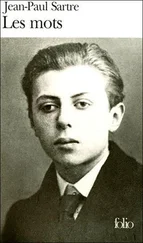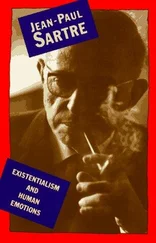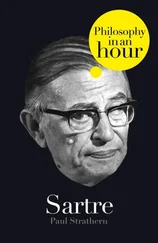Ismail met many of Baghdad’s political and literary personalities, who attended these weekly gatherings. Every Thursday and Friday evening Shaul hosted a high tea which was attended by many important personalities, who would gather and discuss serious matters. Among the attendees was Anwar Shaul, Mir Basri, Badr al-Sayyab, and the painter Jamil Hammoudi, one of whose works was hanging on Shaul’s wall. There were foreign dignitaries such as Desmond Stewart, the Russian Nicholas Karinsky, and Mary Araminof. The French ambassador, M. Lionel Blanchard and his friend, the painter, Sophie Garso attended those gatherings as well, along with well known personalities such as Rose Khaddouri, Paulina Hassoun, and Amina al-Radi. Dressed in his black suit, Ismail rubbed shoulders with all these luminaries and listened to their complicated discussions. To their animated debates about politics, parties, literature, and the press he could only listen. He understood the essence of what they were saying; the implication was that injustice was widespread and only those people gathering in Shaul’s salon were capable of saving the world. During one of those gatherings he witnessed a heated discussion that turned into an exchange of insults between Raphael Batti and another person. Ismail had met Batti before but didn’t know his adversary. This made him consider the situation an assault on the house that was hosting the gatherings, and on himself personally. Acting as he did in Khan Abu Dudu, he grabbed a knife from the fruit bowl and attacked the culprit. He missed him but managed to slap him very hard on the face, unaware of the man’s cowardice as Batti began shouting and jumping on tables and chairs and running toward the entrance. Some of the guests intervened and tried to stop the fight. When Raphael Batti saw the knife glinting in Ismail’s hand close to his face, he fainted. He had never been so close to a threatening knife. His friends revived him by throwing a bucket of water in his face. He asked to be carried out of the house, despite Shaul’s supplications that he stay. Ismail stood near the stairs, not knowing what to do, but Shaul turned to him and admonished that these were literary disagreements and that he was “in a respectable salon, not Khan Hejjeh.”
This hypocrisy and the false feelings of friendship puzzled Ismail. He couldn’t understand how these people could strongly disagree with one another and then leave the salon, as if nothing had happened, and pretend to be friends. Their polite words masked a deep dislike, even enmity, for one another. Such a thing would have led to armed fights in the Khan Hejjeh. Dismayed and disbelieving, he watched the guests spend hours criticizing and even insulting a poet, but if he happened to walk into the party they’d receive him like a friend, hugging and kissing him, telling him how much they missed him. This hypocrisy made him uneasy even vis-à-vis Shaul, whose behavior seemed full of contradictions. The rich Shaul, a miser whose main concern was to gather a huge fortune, pretended to build a colony of happiness on earth. He recalled how Shaul had bargained with him long and hard over the price of the pornographic photographs and paid him only after exhausting all possible bargaining tricks. As Ismail examined the beautiful surroundings where he was living, the life of ease and plenty he was enjoying, and the valuable pieces of furniture that filled the house, he wondered whether Shaul had gotten them through such bargaining! Yet Ismail was willing to set aside all his objections to Shaul’s behavior and put in their place a naive outlook on matters that would win Shaul over and put his adopter’s mind at peace concerning his employee’s total acceptance of the concept of inclusive happiness. Deep inside, though, Ismail found it hard to believe Shaul, whom he saw as an irresolute, wavering man who, despite his extreme wealth, bought his pornography at bargain basement prices. How could Ismail then believe that Shaul could build a colony of purity, sacrifice, and happiness? Ismail was unable to resolve this contradictory behavior: the owner of a huge store and a palatial mansion and a believer in the collective right to wealth — why didn’t he give his store to the poor and transform his palace into a khan for poor laborers?
Ismail couldn’t stand this situation any longer. One day he dared to ask Shaul why he didn’t share his store with poor people and put his mansion at the disposal of the miserable workers and porters. The question upset Shaul, who replied angrily, “Would that solve the question of poverty, tell me? The issue of poverty is a historical problem; it was not caused by my mansion. You are wrong in your assessment of things, and he who makes wrong judgments is a devil.”
At Shaul’s flare-up, Ismail fell totally silent. He hadn’t expected his question to provoke such an angry reaction. First of all, because the question was part of ‘history,’ it became a thorny issue. When he heard the word history, Ismail trembled, fell silent, and avoided interfering in issues having to do with the culprit responsible for the suffering of the universe, whom Shaul accused whenever a problem arose. However he listened carefully to the entire story of the devil that Shaul related to him. The story created even more confusion for Ismail and reinforced his conviction that the measuring process was correct and the devil was right.
The truth of the matter was that Ismail was defending his own interests and happiness and had little interest in the other poor peoples’ happiness. He wanted the issues related to his own happiness to remain at the center, which explained his desire to test Shaul’s changing personality. He was trying to find a connection between abstract and concrete things. Words and small comments were worthless to him. What counted were palpable things in full form, the things he placed before himself and considered the way Shaul wanted him to. He used to repeat his words only to discover with little effort that culture and the art of speaking are simple. To become a persuasive person it was enough to learn a few phrases, put them in a suitable context, and adopt a certain expression on your face. This matter provoked a certain pleasure in Ismail’s emotions and awakened a deep shiver in his soul, one that he kept dormant behind his stiff features.
7
Ismail Hadoub, this dull, lazy man, this drunkard, had awakened forever. He would never go back to his previous state of mental stagnation. Thanks to Shaul he woke up and was now unstoppable, actively hunting and fishing, seeking as much prey as possible. Ismail was in fact a skilled predator who had come to hunt and chase pleasure with the same acumen he called upon when he was living in poverty and misery. He was poised to sniff out his prey, a gift that poor people had, like dogs that could smell meat from a distance. But was Shaul too naive to notice? Of course not!
Like all wealthy people Shaul thought that he could simulate reconciliation, even a superficial one, with Ismail, like the silky fair skin of a sick woman that hides a devastating illness under its softness. Shaul knew that Ismail coveted money by any means, whether it was acquired wisely or from suspicious sources — insurance money for a road accident, an inheritance, a bankruptcy — it made no difference to him. Shaul was looking for a disciple to exploit, and before satisfying his greed he wanted to tame and examine him under the magnifying glass, the same loupe he used to examine his jewelry. He wanted to downsize him, place him on a flat surface with words, ideas, and expressions, move him a few steps forward and a few steps back, then promote him through his political ideas.
Shaul was convinced that history couldn’t be corrected without establishing his happiness colony. Like Jupiter, Shaul was happier whenever he met unhappy people. Ismail was well aware that his time with Shaul was a transition period, because the search for happiness was difficult and the path long, twisted, and profound. On the other hand, he was aware that there was a greater bliss, and that some people changed the concept of happiness, and for them it did not consist of laughter and enjoyment but of tears and sadness. It was a happiness that people sought in order to live a better life. Ismail was made aware that the source of happiness was changeable when Shaul entered the store one day with tears running down his cheeks from lifeless eyes. He was crying over the fate of the hero of a novel he had read the previous night. Ismail had no qualms about imitating Shaul. He cried volubly and beat the table with his hands in a somewhat sarcastic way. He wanted to imitate Shaul’s vision of the world in order to set perimeters within which he could act, consistent with the framework Shaul had traced for him. This skilled hunter knew exactly what Shaul wanted from him. He imitated and tricked him, but Shaul did not become aware of his deception until the existentialist philosopher returned to al-Sadriya and Ismail left to follow him. Shaul understood that a human being never sacrificed anything for nothing.
Читать дальше












